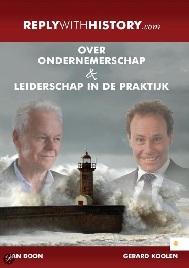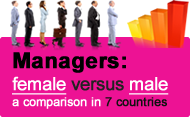81. Entrepreneurship in risk areas

Dear Gerard,
It is good to hear that entrepreneurs in Eastern European countries deal more positively with mistakes compared to Western companies. One reason is rooted in the relative freedom of companies in Eastern Europe experienced since the communist era under Tito (Balkan countries) and Lenin, Stalin, etc in the former Soviet Union. Communism meant the centralized control of individuals and companies and corruption at the highest levels, which ensured all creativity was repressed. Years of this style of management of the country led to the collapse of communism. Eventually in 1989, the fall of the Berlin Wall led to the freedom that is now enjoyed in Eastern Europe. It is not surprising that the generation that grew up after 1989 have a much more positive outlook than the older generations.However, the then prevailing elite looks back nostalgically to the previous period, as many benefits from that time have gone. It is not surprising that people like Putin view the collapse of the USSR with dismay. This is also the backdrop to the current crisis in Ukraine. Putin will do anything to recover part of the lost territory. He wants to take back, by force if necessary, the Russian-speaking areas. The West must handle this situation very subtlety. The situation must be viewed from the perspective of the other party as well as from our perspective. This is certainly not easy, but this is not a black and white matter, but mostly gray. Of course, the shooting down of the Malaysian aircraft must be treated as a war crime and those responsible must be punished.
The current boycott by the West was inevitable. The counter-boycott from Russia was also to be expected. This is particularly damaging for those entrepreneurs whose main focus is Russia. From the Netherlands, for example, the vegetables and dairy sector and related logistics companies have been hit. So how do you deal with those companies that are affected by this boycott? Do you provide massive subsidies or follow the market principle? I favor the latter in this case. There are risks in doing business in countries like Ukraine or Russia. And this must be taken into account in this instance. I would even recommend a risk premium of 50% or more when doing business there. In other words, if you invest here you have a payback period of two years or less. I wonder how you deal in Ukraine in these circumstances. If Western companies in Russia and Ukraine have problems, it will impact your business as well.
The past week has seen a lot of money leave European markets. American investors are reacting as follows: the boycott will particularly affect those countries that export to Russia and these are above all Germany, UK and France. As a result, the profitability of companies from these countries will fall, so the US investor should pull out of Europe. This is not surprising, however, the situation may change quickly and then we will see a reverse flow. I expect that this turnaround will occur quicker than many expect. Real entrepreneurs are always cautious, of course, when considering a significant risk premium.
Sincerely,
Jan Stam












Leave a Reply